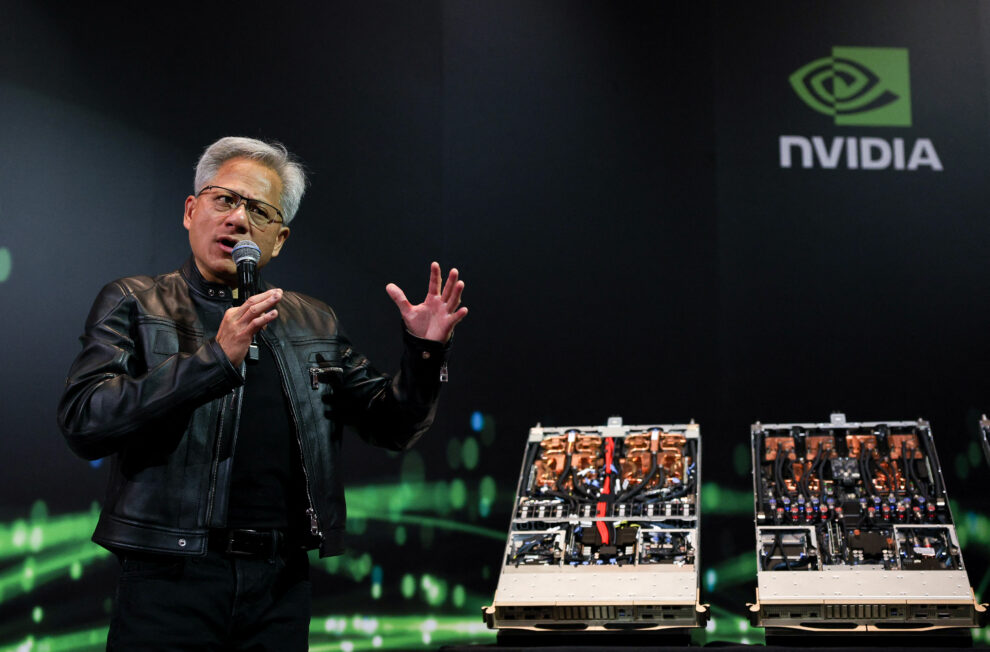Nvidia Eyes Chinese Market With New AI Chip Launch
Introduction
In the ever-evolving landscape of technology, Nvidia has emerged as a formidable player in the artificial intelligence (AI) sector. As the demand for AI capabilities intensifies globally, Nvidia’s strategic focus on the Chinese market reflects not only its ambition to expand its influence but also to capitalize on the unique opportunities presented by one of the world’s largest economies. This article explores Nvidia’s recent AI chip launch aimed at penetrating the Chinese market, examining the implications for both Nvidia and the Chinese AI landscape.
The AI Boom in China
The Rise of AI
China has rapidly established itself as a global powerhouse in AI development. The government’s commitment to becoming a world leader in AI by 2030 has spurred significant investment in this sector. A series of national strategies and initiatives have been launched, all aimed at harnessing the potential of AI to boost economic growth, enhance technological innovation, and improve public services. According to the China AI Development Report 2021, the country’s AI market is projected to exceed 1 trillion yuan by 2030 [modern_footnote_source].
Market Drivers
Several factors contribute to the burgeoning growth of the AI market in China. First, the vast amounts of data generated by the nation’s 1.4 billion inhabitants provide a fertile training ground for AI algorithms. Secondly, rapid urbanization and digitization in sectors such as healthcare, finance, and manufacturing are creating robust demand for AI solutions. Moreover, the Chinese population’s increasing acceptance of technology fosters a conducive environment for AI applications.
Nvidia’s Strategic Move
Overview of Nvidia
Founded in 1993, Nvidia initially focused on graphics processing units (GPUs) but has since expanded its portfolio to include AI and deep learning technologies. The company’s GPUs serve as the backbone for many AI applications, providing the necessary computational power for massive datasets and complex algorithms. In recent years, Nvidia has also ventured into AI software and data centers, enhancing its relevance in this space.
The New AI Chip Launch
In late 2023, Nvidia announced its latest AI chip, designed specifically for high-performance computing and AI tasks. This chip boasts improved efficiency and speed, making it ideal for training deep learning models. Nvidia’s decision to launch this new technology in China signifies its commitment to tapping into the Chinese market’s potential.
Technical Specifications
The new AI chip is based on Nvidia’s latest architecture, which enhances parallel processing capabilities and offers improved power efficiency. Key features include:
- Increased number of CUDA cores, enabling parallel processing of large data sets.
- Enhanced memory bandwidth for faster data transfer rates.
- Support for advanced machine learning frameworks, making it adaptable to various applications.
Target Applications
Nvidia’s new AI chip is versatile, and its applications range from natural language processing to autonomous driving. In the Chinese context, several industries stand to benefit significantly:
-
Healthcare: AI can improve diagnostic accuracy and personalize treatment plans. For instance, health tech companies in China are utilizing AI for early disease detection and patient management, areas where Nvidia’s chips can provide substantial computational support.
-
Manufacturing: China’s manufacturing sector is increasingly adopting automation and AI solutions for efficiency and quality control. Nvidia’s technology can help optimize manufacturing processes, reduce costs, and enhance productivity.
- Financial Services: AI algorithms are being used for fraud detection, risk assessment, and customer service enhancements within the Chinese financial sector. Nvidia’s AI chips can enable further innovation in this domain.
Competitive Landscape
Local Competitors
Nvidia’s entry into the Chinese market does not come without challenges. Local companies such as Alibaba, Baidu, and Tencent have already established themselves in the AI space, often with government backing. These companies are investing heavily in research and development to create competitive technologies, making them formidable contenders for Nvidia.
Government Regulations
In recent years, the Chinese government has taken a more stringent approach to foreign technology companies. Regulatory scrutiny has increased, particularly in sectors like AI, which has national security implications. Nvidia will need to navigate this complex regulatory landscape carefully to ensure compliance while fostering partnerships with local firms.
Partnerships and Collaborations
To strengthen its position, Nvidia has pursued various partnerships with Chinese tech giants and academic institutions. Collaborating with local enterprises allows Nvidia to tailor its offerings to the unique needs of the Chinese market while also gaining insights into local consumer behavior and preferences.
Academic Collaborations
Nvidia has established partnerships with several Chinese universities, fostering research and innovation in AI. These collaborations help in nurturing local talent and enhancing the company’s understanding of the market dynamics, further solidifying its position in China.
Joint Ventures
Nvidia has also explored joint ventures with local technology companies, enabling shared resources and expertise to accelerate the development and deployment of AI solutions across various sectors.
Challenges Ahead
Supply Chain Issues
The global semiconductor supply chain has faced numerous challenges in recent years, including disruptions caused by the COVID-19 pandemic. As Nvidia produces its new AI chips, it must ensure a steady supply of semiconductor components to meet demand in China.
Geopolitical Tensions
U.S.-China relations have grown increasingly tense, particularly concerning technology transfers and national security. Nvidia must tread carefully, balancing its business interests with geopolitical realities. U.S. export controls could affect Nvidia’s ability to operate freely in the Chinese market.
Adapting to Local Needs
China’s AI landscape differs significantly from that of the United States and other Western countries. Cultural nuances, consumer behaviors, and regulatory frameworks necessitate that Nvidia adapts its strategies to align with local market demands. Understanding these dynamics will be key to successfully penetrating the market.
Future Prospects
Market Growth
Despite the challenges, the future of Nvidia in the Chinese AI market appears promising. Market analysts predict that as China continues to invest in AI initiatives and technology adoption, demand for high-performance computing and AI solutions will soar. Nvidia is well-positioned to capture a significant share of this expanding market.
Broader Implications
Nvidia’s market entry into China is indicative of a larger trend in technology globalization, where companies are increasingly looking to tap into emerging markets. The company’s success in China could serve as a model for other Western tech firms aiming to expand their footprint in the region.
Conclusion
Nvidia’s strategic launch of its new AI chip in the Chinese market marks a significant step toward capturing a share of one of the world’s most dynamic and rapidly evolving sectors. By leveraging its technological expertise, forming strategic partnerships, and adapting to local needs, Nvidia can navigate the unique challenges of the Chinese market. As AI technology continues to permeate various industries, Nvidia’s role is likely to grow, shaping the future of AI in China and beyond.
References
- China AI Development Report 2021. [modern_footnote_source]
- Nvidia’s Corporate Announcements. [modern_footnote_source]
- Market Analysis Reports on AI in China. [modern_footnote_source]
Click here and see the Source

























Add Comment